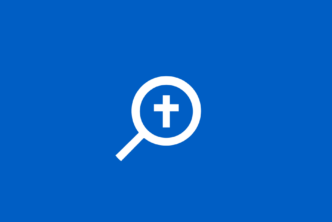Today’s guest blogger is Dale Pritchett, vice president of sales and marketing for Logos Bible Software.
User Mark Alison wrote in the Logos Newsgroup, “I don’t think Logos or anyone else will ever have rights to every publisher’s works.”
While this is certainly a true statement, at Logos we continue to pursue rights to as many books as we can in the field of biblical studies. It is our fond hope that one day we might include works from Zondervan, and the denominational publishers now unavailable to us.
We are running as fast as we can. We have two full-time publisher Reps, plus support staff, licensing new books every day. We have thousands of contracts to be maintained and reviewed, royalties to calculate, technology licenses to execute and data processing projects to specify, key, tag and proof.
We process millions of pages of data annually and yet feel the pain when a simple typo is reported. We work in both modern and ancient languages. We employ approximately forty people in-house who are on digital book design and production. All of these efforts are directed toward the single goal of creating digital books to reach a “critical mass” for biblical studies.
It is not about building a monopoly. It is not about favoring a particular theological school or doctrinal position. It is not about favoring one publisher over another or refusing to work with other publishers. It is not about greed or competition or pride of accomplishment. It is about “critical mass.”
There is no such thing as a digital library alternative for biblical education until and unless there is a digital library for biblical studies sufficiently extensive to enable meaningful work in the field. This is the key. It is like saying there can be no alternative to the railroad until there are sufficient airline seats to carry the passengers. It is like saying television will never be as popular as radio until everybody who owns a radio can afford a television.
Logos is about realizing the dream of a portable digital library that makes biblical publications accessible and practical at any point on the planet. This is our passion, our dream and our daily work.
It will not be accomplished until there is a “critical mass” of books in the digital library. Look at
how many digital library initiatives have failed because they had wide breadth but insufficient depth to do real work.
We publish more digital books than all the others in our field combined. This is a simple statement of fact. Among the reasons we have been able to accomplish this are a clear focus on the task and a clear understanding of the special technical challenges involved in dealing with biblical reference works.
The task required us to define a new digital publishing standard in which we could display, search and link all kinds of books, with all styles of organization in all languages from all publishers. To accomplish this, we set a hard course for ourselves that involved doing things the “hard way” demanding attention to detail that could only pay off in the long run with a very large, cross-linked library — critical mass. It has taken a long time to reach the point where the critical mass shows off the benefits of those years of detailed effort. This whole end result usually translates into a simple user comment like, “I would really prefer to own the book in Libronix format.” Thank you. We share your thoughts.
If we are ever to have additional titles from Zondervan, Eerdmans and others it will be because of simple statements like this, “I would really prefer to own the book in Libronix format.” Believe it or not, publishers hear you. They really do care.
Postscript: What is Critical Mass?
While there may be many answers to this question, we basically think in terms of book replacement. Critical mass is a sufficient volume of titles to represent the equivalent number of volumes in a corresponding paper-based library. On this basis, critical mass may be different for a pastor’s library and a Bible college or seminary library. In time we hope to have sufficient digital resources to equal a large seminary library. When that time comes we will be able to think in terms of “brick and mortar” replacement or real estate savings.





